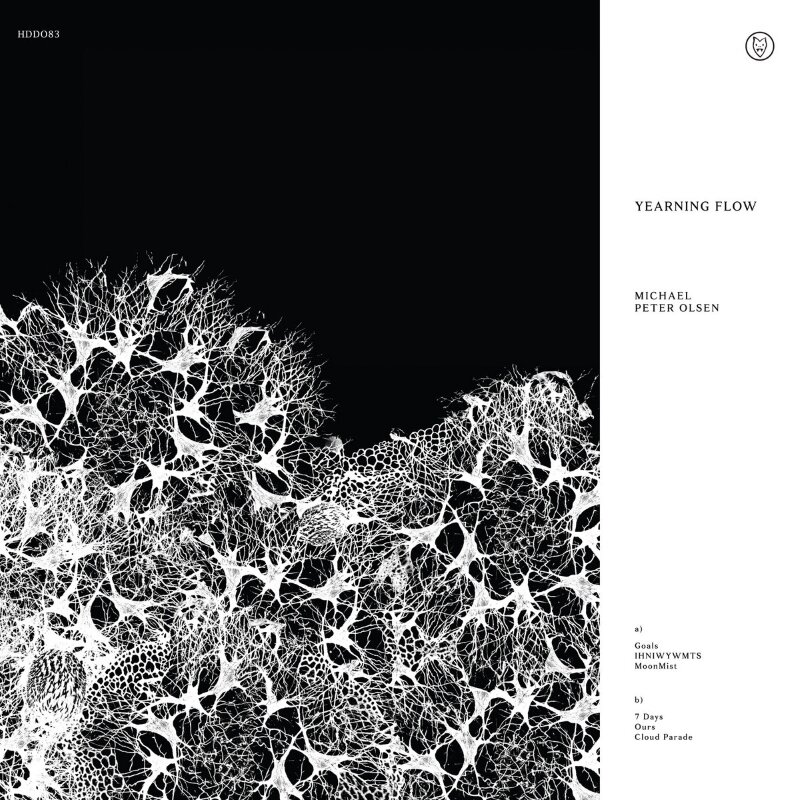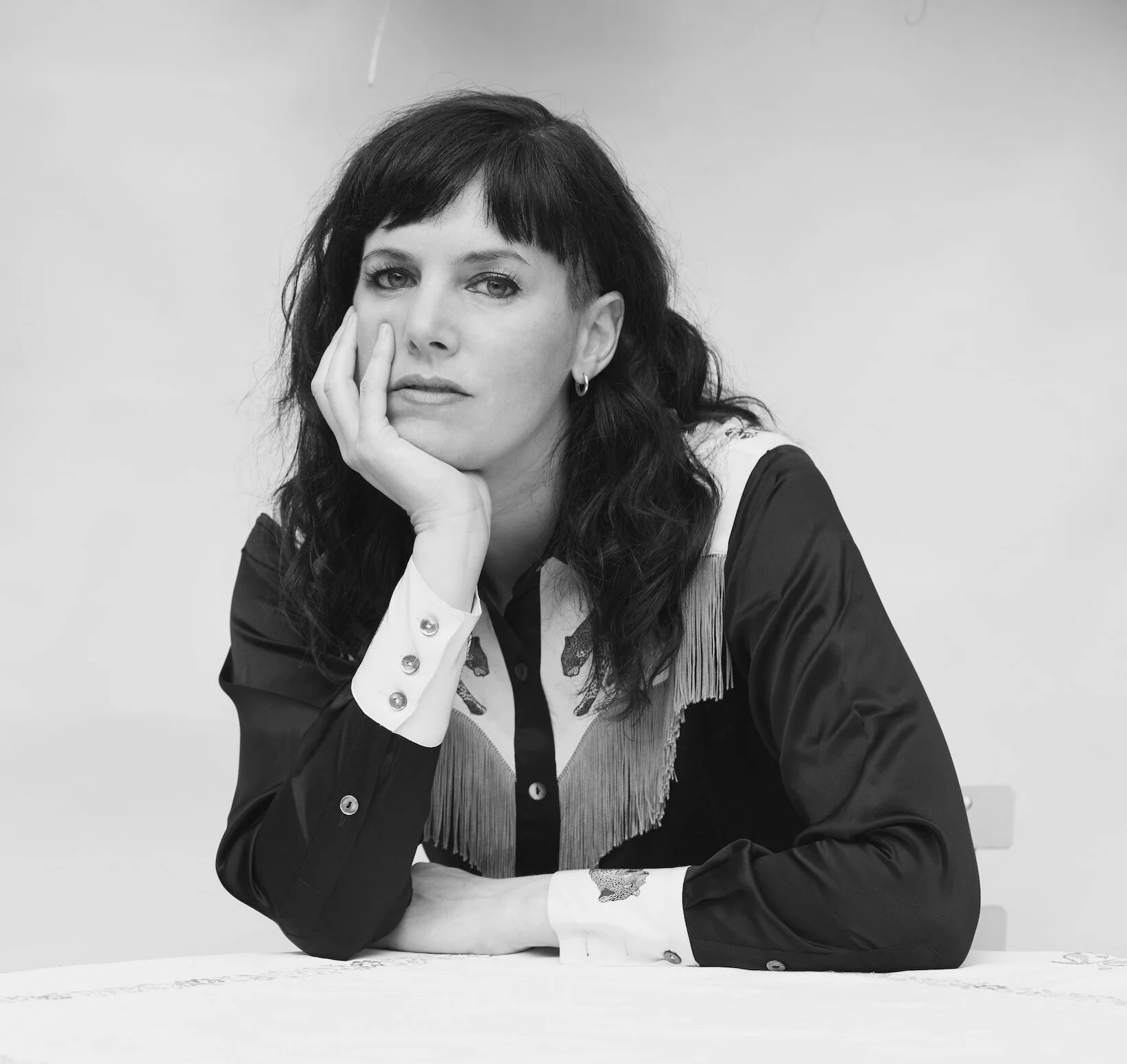MICHAEL PETER OLSEN
Photos by Erica Gittens
Michael Peter Olsen is a Toronto-based composer, cellist, engineer, producer and Grammy-nominated songwriter. He has performed on over one hundred recordings including Drake’s VIEWS, Arcade Fire’s Funeral, Joyful Rebellion by K-OS, Jim Guthrie’s Now More than Ever and The Smell of Our Own by The Hidden Cameras.
After decades of playing and experimenting, Michael is creating his own sound, “Post-Cello Modernism,” a rethinking of cello and the various roles it plays in popular and film music. In this interview, he discusses the ideas behind Post-Cello Modernism and the making of his first full-length solo album Yearning Flow.
Interview by Tyler Nesler
After a long period of experimentation you came up with your own particular sound which you call “Post-Cello Modernism.” How would you describe Post-Cello Modernism musically and also as a unique conceptual approach to the cello?
The Post-Cello tag is a name for ideas I have been germinating for decades, but never actualized in a focused way. Put simply, it’s my attempt to divest myself of the classical approach to the instrument. Using an electric cello and heavily processing it is not so unusual now as it was when I started out years ago, and people are doing really cool things. But I like to think what I do with the instrument is less of a novelty and more deliberate than what I sometimes see out there.
I use the ECello partially as an imposed limitation, striving to craft the sound by altering the cello instead of using, for instance, a synth. I found that this approach always subtly imbues the sounds with a kind of emotional rawness and imperfection. Also there is a familiarity that creeps into even the weirdest sounds — the cello is very much like the human voice, which is why I think people connect to it so much. For me the instrument serves the sound and composition, it’s never about “fancy” playing. Besides the longer form, film-score-like music on my debut record, I also have a collection of shorter, more pop-based instrumentals that I play in live shows. This version of the Post-Cello sound is more accessible, melody driven and direct, but I still compose it from the same conceptual base.
To date, you've performed on over a hundred recordings, including The Smell of Our Own by The Hidden Cameras, Drake's VIEWS, and Arcade Fire's Funeral. How has working with such a diverse range of artists helped you to develop your own compositions? Has anyone surprised you in the ways their styles may have influenced your own?
I think that over my twenty years or so of session work I slowly absorbed a lot of things. Though I did write a large amount of parts and arrange for string ensembles, I never saw myself as a composer until around 2012, when I released a solo record of art folk songs under the name Our Founders. I did however have a mandate early on to try and play the instrument in a pop music informed way, to not interpret it through a classical mindset.
After university, I was ready to pretty much give up on classical. Having played it since age five, I was done. Over the years I learned much about song structure and how a cello could fit into many different contexts. I am lucky to have been able to work in a great variety of genres and they all taught me something. A lot of what I learned was about recording and production, too, eventually causing me to open a studio and pursue that full time for around ten years.
Some of my most rewarding sessions were the ones which were the biggest leaps of style. It’s not so uncommon now but my interactions with hip hop, artists like K-OS back in the early 2000s, were really seminal for me. It seemed unlikely at the time but it really worked. Also being a full time touring and recording member of the Hidden Cameras was a big influence. Being part of a focused art project which wasn't as much about technical playing as it was a simpler pop approach with a high concept performance helped burn the music school out of me. That music was fantastic to be a part of and it helped me to understand how powerful unifying underlying themes can be.
Earlier this year you released your first full-length solo album Yearning Flow. Is this project your first attempt at embodying Post-Cello Modernism? What elements do these compositions have which directly express this new approach?
The project started completely randomly one day. I had decided I wanted to get an ECello again and set about designing a new FX processing setup, notably a serious digital harmonizer. Within a few hours of having it all setup I had written a new piece and knew I had the makings of a project. What it took to arrive here was a year or two of discovery and refining, and the very last step was having a name for it.
My approach was to try anything that came to mind, and quite a few open format improv sessions with other players with no guidelines. After all this experimentation I started to realize what was really working for me and Yearning Flow reflects this. Having a focused idea of where you are of course invites you to continue to develop things from a strong base and change, but I needed to really establish a base of what could be possible using a solo ECello.
Yearning Flow, Hand Drawn Dracula, 2021
Yearning Flow contains six compositions of ambient textures and complex sound design. There is a very emotional undercurrent to the music, with high ebbs and lows. When you composed the album, were you working with any sense of a narrative or an overall through-line to the pieces?
There’s not a narrative per se, but there is definitely a distinct emotional arc to the record that is designed to take you through all the feels. I’m sort of old school in really appreciating the two-sided vinyl format and its limitations. I write singles to be self-contained, but the record is really meant to be listened to as a collection in sequence to have the full effect. There are some underlying conceptual themes, most of which I discovered after the fact. Realizing this had occurred unconsciously at the time made me feel I was on the right track.
You also put out an unusual album release live video that featured live digital art by Shawn Chiki, along with brief narrative sequences (written and performed by Emily Carter, Andy McQueen, Khadijah Roberts-Abdullah, and Kimberly Laferrierr) which seem to feature glimpses into the random moments of a few different viewers apparently watching the show. What was the overall inspiration and concept behind this?
After almost a year of Covid, which had completely consumed all of my shows and touring surrounding my release, I was a bit bummed out. However, I had really enjoyed taking an active role in the filmmaking process of my videos. I knew that a simple live stream wouldn't be interesting enough for me, I wanted a message. The show was the result of some brainstorming with film maker Jake Roels and musician/impresario Brandon Lim (who also appeared on the record). I wanted to do something actually live, like live TV, to add the genuine element of danger of it all going wrong. Thankfully, Jake was up to the multi-stream technical challenges involved. Shawn Chiki was introduced to me around then and he ended up having an amazing aesthetic and the right tech ability to be able to produce the art live and react to what was happening. It all had to be done from separate locations to be safe.
The acted sequences were designed to be a comment on the experiences we were all having with live streaming, Zoom meetings and the weirdness of detached online pandemic life. The actors all had free reign, but they ended up separately creating beautiful sequences that were little glimpses of Covid life. The sequences were timed to the set so i could score them as they happened. Initially most viewers genuinely thought it was a technical foul up and the whole thing had gone to hell, causing many semi- panicked comments in the live chat. I was very pleased with the show.
On Yearning Flow, you also worked with other contributors such as the pianist Todor Kobakov, singer-songwriter Merival, and producer Brandon Lim. How did each of these collaborators help shape the album's final result?
Chris Evans, Brandon and Todor all volunteered to do an improv session with me in that initial period of discovery I mentioned earlier. I took all of their amazing contributions and re-worked, editing and processing the sounds to form the compositions. I have spent much of my musical life collaborating with other musicians and I always gain much from it. These collaborations really helped me understand the shape of the record and the potential of the overall sound. The collaboration with Merival was a little less improv and more traditionally composed, specifically to take advantage of her incredible singing and sensibilities. [The song] “Cloud Parade” is in part an attempt to reclaim the things that inspire me from my classical music background and it seemed appropriate to take more of that kind of approach to invoke it.
The choreographers Mateo Galindo Torres and Jade Whitney created compelling dances for the stunning videos of "Cloud Parade" and "Falling Forward," respectively. Modern dance seems to be a very natural expressive accompaniment to your music, was this the reason dancing is the central motif in these videos?
I really see my videos as opportunity for film making. I mean, if you're going to all the trouble to make a movie, it should mean something, right? I had it in my mind I would like to interact with other artistic disciplines in my videos; visual art (on "Mayday") and dance were what I started with. I had recently fallen in with a scene of dancers, so I saw an opportunity but I had basically no real dance knowledge. I called up my friend and dramaturge Melmun Bajarchuu over in Germany for a little insight into how I might communicate my ideas in a dance context. She helped me understand the language of dance a bit better. Also, she identified some key themes in all my compositions thus far and gave them a historical context. Being able to coherently impart these underlying themes allowed the choreographers and directors (Jessamine Fok and Adrienne McLaren) to create dance and images that connect to the music in a way that goes a little deeper than surface aesthetic. I see it all as an opportunity to learn and connect the power of different arts to hopefully create deeper more universal meanings.
How do you see your work evolving over time? Any plans to expand further into composing for the screen or stage?
I have composed for film and TV and plan to do a lot more of it, I love film and it’s very rewarding to be part of that process. The Post-Cello idea lends itself very easily to visual mediums and I think it sounds pretty fresh. I am also studying the workings of video game composition and looking for opportunities to learn about it. There’s a lot of exciting things happening there and I'd love to figure out how I could integrate my musical ideas with a game environment.
Regardless, I’ll continue to produce and explore music for its own sake, as it feels like I’m finally scratching the surface of something I've been in search of for a long time.
Yearning Flow is available now
You might also like our interviews with these musicians:
Tyler Nesler is a New York City-based freelance writer and the Founder and Managing Editor of INTERLOCUTOR Magazine.







